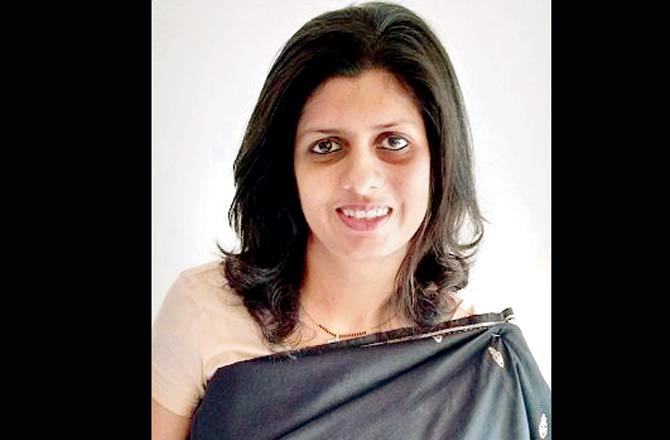One out of every five employees in India suffers from workplace stress. A new book tells you how you to beat the nasty S before you burn out

One out of every five employees in India is overworked and stressed out, and more than 50 percent claim to be experiencing some degree of work-related depression, reveals a 2019 survey by an HR tech start-up named Hush. According to Anju Jain, a psychologist, business leader and author of the recently published book Burn Out – Beat Fatigue To Thrive In An Overworked World (Penguin Random House), what compounds this problem even further is the fact that burnout has become "the new normal: an acceptable by-product of hard work and success." This, despite the fact that the implications of burnout are grave, with coronary heart disease, gastrointestinal issues, high cholesterol and even death under the age of 45 being linked to it.
ADVERTISEMENT
Adds success coach Sushma IR, "Factors such as upbringing, and cultural and societal conditioning all play a pivotal role in employees staying late at work, never being able to say no, working on weekends and having an extremely high response rate to emails and messages at any time of the day or night. When most employees follow such a pattern, there is a lot of pressure on others to live up to the same standards." The first step towards breaking free of this vicious cycle, therefore, is to be accountable for the situation. If you are going to blame your manager for setting stringent expectations or your co-workers for meeting those expectations, or your family for pressurising you to work, you are always going to feel like a victim. When you take accountability for your situation and believe that you can always make a choice, it puts you in an empowered state, she adds.
Jain along with other experts, share strategies to protect yourself from burning out.

Sushma Iyer Rasal
Stress vs burn-out
While burnout can be caused by unrelenting stress, it isn't the same as too much stress. "When you're stressed out, you may still believe that you will feel better once you pull yourself together. Being burned out, on the other hand, leads to feelings of emptiness and mental exhaustion. While it's relatively easy for people to know when they're under a lot of stress, most people don't realise that they're burned out," says Jain. It's important to make this distinction, she adds, because not all stress is bad; in fact, experiencing some amount of stress can improve your performance, she explains.
Have a sense of purpose
Purpose gives you a sense of direction. Knowing your purpose ensures that all your actions are aligned towards helping you achieve that purpose, says Jain. "For instance, if you are very clear that your purpose is to make tons of money, then all your actions will be driven by that purpose. You may choose to do overtime, take on extended assignments, and not mind the overwork because you know you will be paid handsomely. On the other hand, if your intent is to positively impact others' lives, you won't worry about money but rather seek opportunities to live by your purpose. In the absence of purpose, you don't know which direction to take. You do all sorts of things — put in extended hours and take on too much — all without discerning what you actually want, and hence may remain frustrated despite giving it your all," she writes.
Don't give up on relations
In a number of empirical studies, some tracking thousands of people for years, close relationships predicted health and increased feelings of happiness, security and self-worth, says Jain. When Brigham Young University researcher Julianne Holt-Lunstad and others collated data from 148 studies totalling more than 3,00,000 people globally, they confirmed a striking effect of social support. Those with more connections had survival rates about 50 per cent higher than those with fewer connects. The impact of fewer connections appeared to equal the effect of smoking 15 cigarettes a day or having an alcohol abuse issue and double the effect of being obese. "Although we all know the value of relationships, at times, we fail to nurture them. What we forget is that these very relationships can protect us from the pressures of life. Empirical work shows that those who prioritise relationships along with their work perform better at work," she adds.

Case study 1
Don't be impulsive
In 2005, I was working in a managerial position at an MNC. At the beginning of the week, I would already be longing for the weekend. I wouldn't feel like heading to work, and I wasn't quite sure why. I would feel tired, disengaged and unmotivated on most days, and constantly keep checking when I could go home. I was snapping at my colleagues, which was something I never did, and was always feeling overwhelmed about the amount of work I was expected to do. And since, at that time, I didn't know any better, I quit my job and took a two-year sabbatical to explore my hobbies and discover my passion. Although, looking back I have no regrets and moving out of a job to start your own business has its place; as a life coach, I would never advise anyone to quit on an impulse as a response to being burned out.
- Nidhika Bahl, life coach

Case study 2
Know what defines you
I left my job at a top advertising company to join a food-tech start-up. It seemed like the perfect avenue to combine my passion for food with my career. In 2016, the company shut down its Pune operations. Although we were reassured that our jobs were still secure, I was finally given the pink slip. I tried to keep my spirits up, but a month-long unsuccessful job search began to eat away at my confidence. I became increasingly depressed. After much introspection and detailed conversations with my family, I realised that the reason why I was hit so hard by the loss of my job was because I had based my entire identity on my job alone. I had to understand that it was food that I was passionate about and not the job in itself. With that realisation, I gradually took to food blogging. Soon, my love for food took over and I began to do quite well as a blogger.
- Shilpa Chawla, food blogger
Celebrities who have suffered from burnout

- Comedian Tiffany Haddish spoke about how burnout affected her lacklustre New Year's Eve performance.
- Beyonce has cancelled shows due to exhaustion; in 2011, she took a year off for her mental well-being.

- Selena Gomez has discussed feeling burned out and receiving dialectical behavioural therapy.
Catch up on all the latest Mumbai news, crime news, current affairs, and also a complete guide on Mumbai from food to things to do and events across the city here. Also download the new mid-day Android and iOS apps to get latest updates
 Subscribe today by clicking the link and stay updated with the latest news!" Click here!
Subscribe today by clicking the link and stay updated with the latest news!" Click here!







